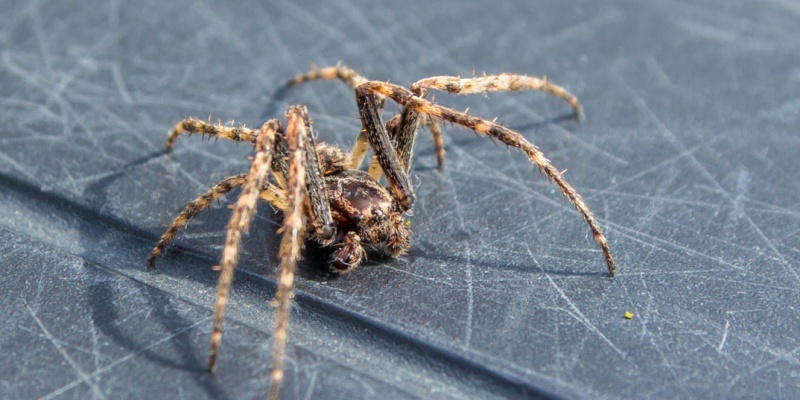Finding spiders in your home can be unsettling, especially if they appear frequently or in large numbers. While these eight-legged visitors are often more beneficial than harmful, their presence indoors can cause concern. Understanding why spiders are making themselves at home in your living space can help you take effective measures to control and prevent their intrusion. Here are several reasons why you might be seeing spiders in your home and what you can do about it:
Seeking Shelter and Food
Spiders, like many pests, enter homes primarily in search of food and shelter. Your home can provide an ideal environment with plenty of food sources, such as insects, and shelter from the elements.
- Food Sources: Spiders are predators and feed on insects such as flies, mosquitoes, and ants. If you have an existing pest problem, it’s likely that spiders will follow, as they are attracted to areas with abundant prey.
- Shelter: Spiders seek out quiet, undisturbed areas to build their webs and lay eggs. Basements, attics, and rarely-used rooms are prime locations for spiders to set up camp.
Seasonal Changes
Seasonal changes significantly impact spider behavior. Spiders are more likely to enter homes during certain times of the year.
- Autumn: As temperatures drop in the fall, spiders seek warmer environments to survive. This leads to an increase in spider sightings indoors as they move inside to escape the cold.
- Spring: The warmer temperatures of spring can drive spiders out of hibernation or hiding, leading them to explore new territories, including your home.
Openings and Entry Points
Spiders often gain entry into homes through small cracks and openings. These entry points can include:
- Windows and Doors: Poorly sealed windows and doors are common entry points for spiders. Gaps and cracks around these areas provide easy access.
- Vents and Utility Openings: Spaces around vents, utility lines, and plumbing can serve as entry points for spiders.
- Foundation Cracks: Cracks in the foundation or walls of your home can also allow spiders to enter.
- Clutter and Dark Spaces: Spiders thrive in cluttered and dark spaces where they can easily hide and find prey. Common areas include:
- Basements and Attics: These areas are often filled with boxes, old furniture, and other items that create perfect hiding spots for spiders.
- Garages and Sheds: Storage areas with clutter provide ample hiding spots and can attract spiders.
- Under Furniture and Behind Appliances: Spiders prefer to stay out of sight, making the spaces under furniture and behind appliances ideal for their webs.
Moisture and Humidity
Spiders are attracted to areas with higher humidity levels. Moisture provides a favorable environment for their survival and also attracts other insects that spiders prey on. Common moist areas include:
- Bathrooms: Bathrooms are often humid and provide plenty of small crevices for spiders to hide in.
- Kitchens: Leaky pipes and sinks can create damp areas that attract spiders.
- Basements: Basements often have higher humidity levels, especially if they are not well-ventilated.
Light Attracting Prey
Lights can attract insects, and where there are insects, spiders will follow. Outdoor lights, porch lights, and even indoor lighting can draw insects, which in turn attract spiders looking for an easy meal.
How to Prevent Spiders in Your Home
Understanding why spiders are entering your home is the first step in preventing them. Here are some effective measures to keep spiders at bay:
1. Seal Entry Points
- Inspect and Repair: Regularly inspect your home for cracks and gaps around windows, doors, and the foundation. Seal any openings with caulk or weather stripping.
- Screen Windows and Vents: Ensure that all windows and vents have properly fitted screens that are free of holes.
2. Reduce Clutter
- Organize Storage Areas: Keep basements, attics, and garages organized and free of clutter. Use plastic storage bins instead of cardboard boxes.
- Regular Cleaning: Regularly clean under furniture, behind appliances, and in other undisturbed areas.
3. Control Humidity
- Fix Leaks: Repair any leaky pipes or faucets to reduce moisture levels.
- Use Dehumidifiers: Use dehumidifiers in damp areas like basements and bathrooms to reduce humidity.
4. Manage Outdoor Lighting
- Use Yellow Bulbs: Consider using yellow or sodium vapor light bulbs for outdoor lighting, as they are less attractive to insects.
- Limit Light Usage: Turn off unnecessary outdoor lights to reduce insect attraction.
Professional Pest Control
If you have a persistent spider problem, it may be time to call in the professionals. Trio Pest Control offers comprehensive pest management services that not only address spider infestations but also target the insects they prey on. Our experts will identify the source of your spider problem and implement effective solutions to keep your home spider-free.
Seeing spiders in your home is often a sign of other underlying issues, such as abundant food sources, entry points, or favorable living conditions. By understanding the reasons behind their presence and taking proactive measures, you can significantly reduce the likelihood of spiders making themselves at home in your space. If the problem persists, don’t hesitate to contact Trio Pest Control for professional assistance in managing and preventing spider infestations.
